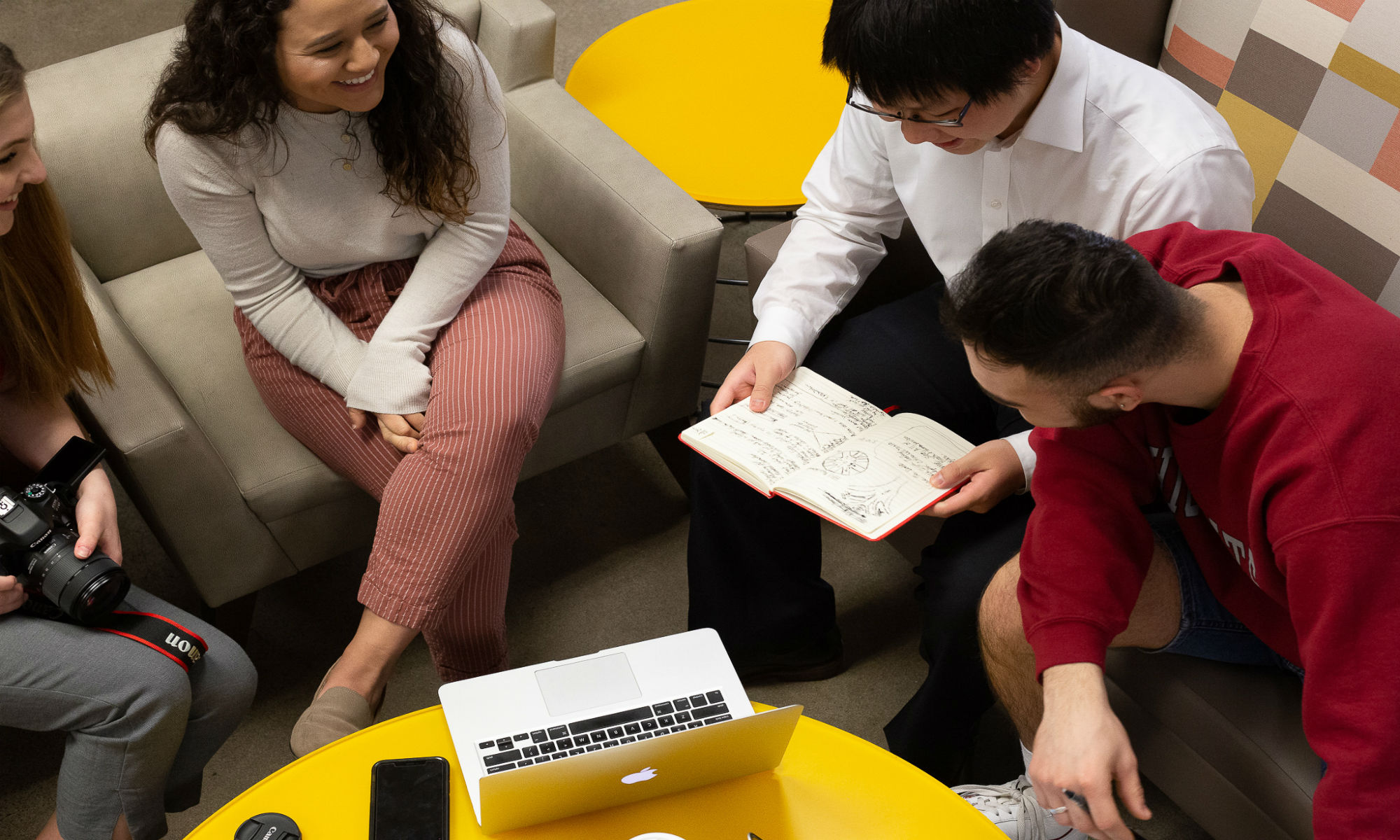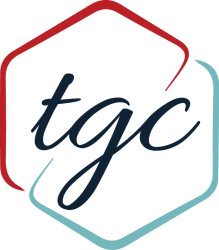The Tehama Group Communications staff this semester consists of about 90 percent seniors. So at this time in the semester all of us are scrambling, sweating and seriously panicking about the fact that we will be graduating in less than five weeks.
Where will we live? Who is going to hire us? Was this is right choice?! All of these questions will keep us awake at night, but when we start to have these thoughts, we need to remember the success stories that come out of TGC year after year.
We have seen these successes from guest speakers who come talk us every semester and on our LinkedIn alumni groups.If you still don’t believe me, an alumna who was in our shoes exactly a year ago has a great story of how she has been able to find great success in the professional world of PR post-graduation.
Allison Hahn was in TGC the entire school year of 2015-16 and held the position of Account Executive, being responsible for multiple clients. After graduation Allie was quickly hired by a Copernio, an agency that specializes in Consumer Tech PR, and has been there for almost a year. Below is a Q and A conducted with Allie regarding her life after graduation and some good tips and knowledge for us graduating seniors.
 Allie Hahn at the airport on her way to the trade show, “ Get Geeked,” in San Francisco.
Allie Hahn at the airport on her way to the trade show, “ Get Geeked,” in San Francisco.
- Question: What did you find most rewarding and most challenging about being in TGC? Is there anything you learned that helped you with the job search process?
Answer: I think the most rewarding and challenging thing was one in the same – working with clients and trying to communicate their PR needs with them. When it worked, it was so satisfying, even though it can be difficult to get to that point. It’s something that I experience now in my job everyday. TGC showed me what my strengths and weaknesses are and what kind of work environment I should seek.
- Question: When you were hired at Copernio, what was your starting title and what is your current title?
Answer: I started as an intern and am now an Account Coordinator, but since my agency is so small, I have a lot of opportunities to do tasks related to Account Management.
- Question: Can you give a brief summary of Copernio?
Answer: Copernio is an agency in Orange County that specializes in Consumer Tech PR. It’s a boutique firm with only seven employees. Before I started working there, I always assumed a boutique agency was a young agency that was growing. That’s not the case here. We’re just a small but tight-knit team, but our business model is developed. Copernio is actually the oldest PR agency in Orange County. Within the umbrella of tech PR, we have a rather diverse client base. The clients range in needs and how integrated we are in their company.
- Question: After being employed for almost a year now, how would you describe your work/life balance as an entry level employee?
Answer: I’m really lucky to be where I’m at because they really promote a good balance. I feel like I’ve been able to establish a life for myself post-grad outside of work. There’s some nights where I’ll have to work late or when I travel, I’ll lose a weekend, but overall my employer is flexible and I am able to take time for myself. I’ve also learned to avoid checking my work email on the weekends and after 7 p.m. so I have some time to actually unwind.
- Question: What have you found to be the most rewarding and most challenging?
Answer: The most rewarding is that I feel like my ideas are valued. They aren’t all good, but everyone in the office will listen to me will always listen and help me improve them so I can present them to the client and see them through to completion.
As for most challenging, my agency has a big policy of self-management. No one is going to be breathing down your neck reminding you what needs to get done or checking in on your progress for a project. Overall it’s been a good thing, but it’s an adjustment from college and TGC where there’s a lot of check-ins while you’re working towards a deadline. At my agency, you have to take the initiative yourself to make sure something gets done.
- Question: Did TGC prepare you well for your entry level job?
Answer: TGC prepared me very well for my job! Some skills you can’t be prepared for and you will have to learn depending on the job you’re doing regardless, but TGC did a great job giving me an understanding of what a PR agency does and how to be adaptable to the needs of clients.
- Question: What do you wish TGC or the J&PR department would have prepared you for more?
Answer: In college, we talk a lot about planning and preparation, which are very important in PR. However, clients will often throw you curveballs and it can be hard to stay on task with your original plan, so sometimes knowing how to adapt is more important than knowing how to prepare.
- Can you give some brief descriptions of your biggest accomplishments thus far in your career?
Answer: I’ve had my clients get some really good National Media coverage which is always exciting, including pieces in Good Housekeeping, Refinery 29, USA Today and The Huffington Post. One of the coolest things that’s happened was I got interviewed on camera on behalf of a client at CES and it ended up on Wired. Wired is one of the biggest tech publications out there and sparked my interest in working in technology a few years ago. It was a very cool, full circle moment.
- Question: I know you have attended two huge trade shows for your company, in San Francisco and Chicago, can you explain how those experiences were and the major things that you got out of it?
Answer: I’ve been to three press/trade shows so far – Get Geeked in San Francisco, CES in Vegas, and The International Home and Housewares Show in Chicago. All three have been different and have been really good learning experiences.
The best thing about these shows is that you get to work with your client face-to-face, an opportunity that doesn’t happen often, and you get to meet members of the press that you’re constantly pitching. The shows are very crazy though and you lose a lot of sleep. CES was the most intense. It’s right after the holidays and the biggest tech trade show in North America. One of my days started at a TV station at 6 a.m. and ended at a press event around midnight. I was on my feet and talking the entire time. It was very fun, but one of the most exhausting days my life.
- Question: Do you have any advice to give to J&PR seniors that are graduating this May?
Answer: My biggest advice for seniors would be to relax and enjoy your last weeks of college! You will find a job and you will make the transition from the college life to adult life successfully. I loved Chico with my whole heart and moving back to So Cal was scary. I was dreading graduation and the unknowns that followed it. I wish I would’ve spent that time being happy and enjoying myself. You’ll never get that time back, so don’t spend it worrying about the future.
As scared as we are and will continue to be until walk down that field, I hope we can take a step back and breath. This internship and program has instilled in us the necessary skills and abilities to get out there and find a way to be successful and #Employeed! Good luck seniors.
Written By: Kasey Perez












